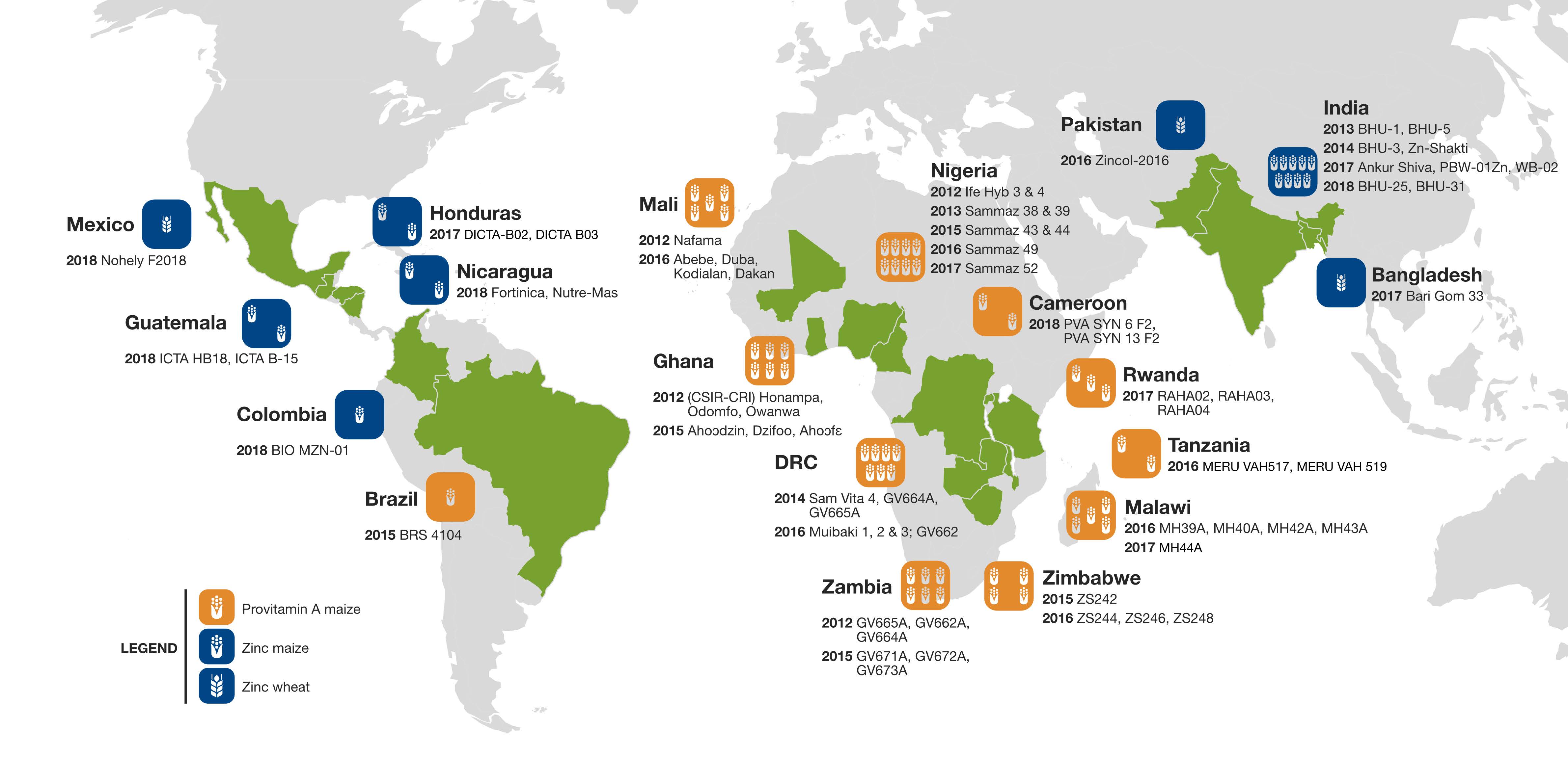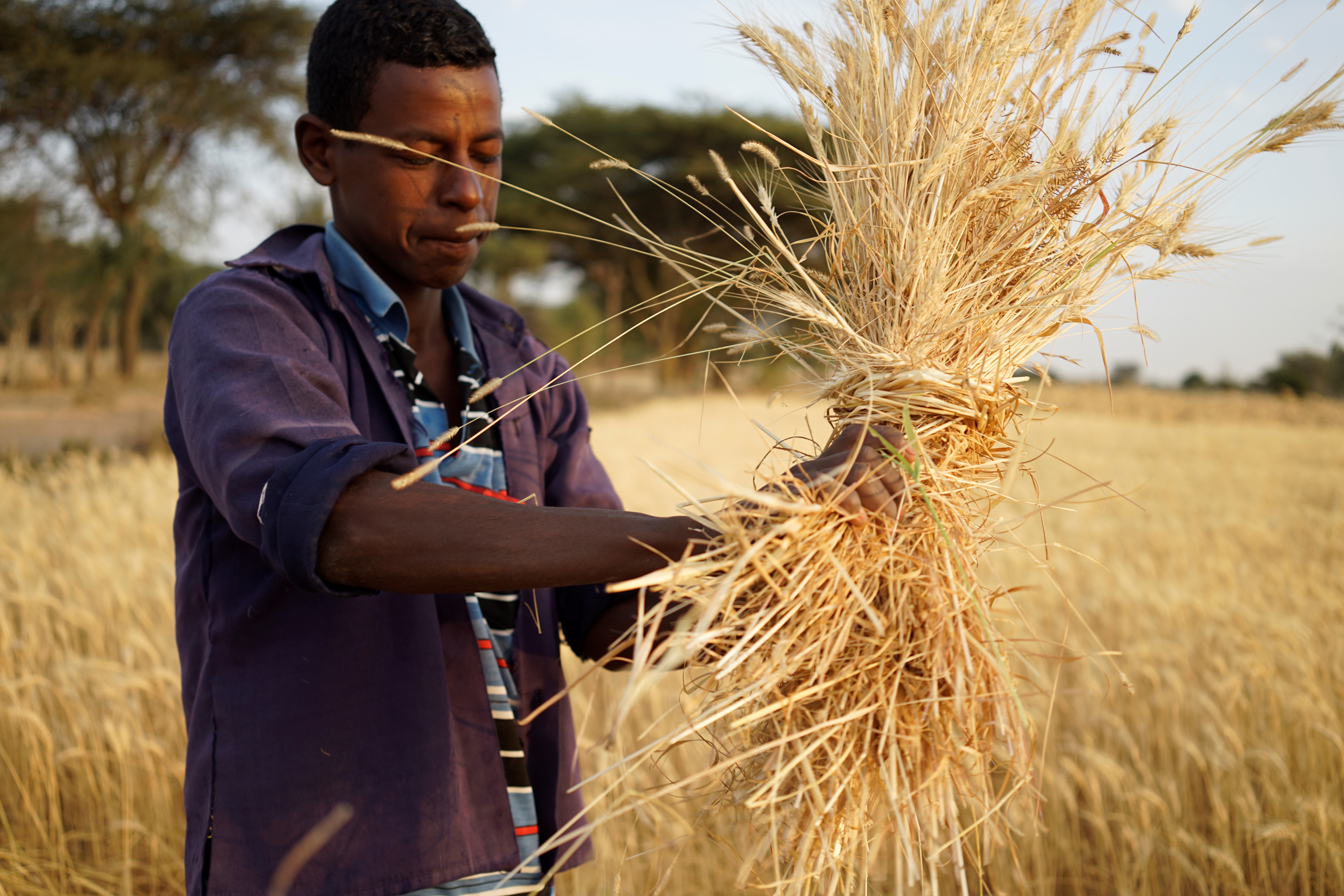
Grain-based foods — both whole-grain and refined, from which the bran has been removed — are a key part of healthy diets, according to a study published in the science journal Advances in Nutrition.
The study, co-authored by Julie Miller Jones of St. Catherine University, Carlos Guzman of the Universidad de Córdoba and Hans-Joachim Braun of the International Maize and Wheat Improvement Center (CIMMYT), reviewed findings of more than 100 research papers from nutrition and medical journals as well as national health recommendations. It presents evidence for positive health impacts from diverse diets that include not more than 50% carbohydrates and the right mix of grain-based foods.
“Epidemiological studies consistently show that eating three 30-gram portions of whole-grain foods — say, half a cup of oats — per day is associated with reduced chronic disease risk,” said Miller Jones, Professor Emerita at St. Catherine University and first author of the study. “But refined-grain foods — especially staple, enriched or fortified ones of the ‘non-indulgent’ type — also provide key vitamins and minerals that are otherwise lacking in people’s diets.”
“Cereal grains help feed the world by providing millions of calories per hectare and large amounts of plant-based protein,” said Braun, director of CIMMYT’s Global Wheat Program and the CGIAR Research Program on Wheat. “They are affordable, shelf stable, portable, versatile, and popular, and will play a key role as the world transitions to plant-based diets to meet future food needs.”
Folate fortification of refined grains has helped reduce the incidence of spina bifida, anencephaly, and other birth defects, according to Miller Jones. “And despite contributing to high sugar intake, ready-to-eat breakfast cereals are typically consumed with nutritious foods such as milk, yogurt, and fruit,” she added.
All grain-based foods, refined and whole, are good sources of dietary fiber, which is essential for sound health but critically lacking in modern diets. “Only 4 percent of the U.S. population, for example, eats recommended levels of dietary fiber,” she said.
Obesity, Type 2 diabetes, high blood pressure, and other illnesses from unbalanced diets and unhealthy habits are on the rise in countries such as the U.S., driving up health care expenditures. The annual medical costs of obesity alone there have been estimated at nearly $150 billion.
“Dietary choices are determined partly by lifestyle but also co-vary with daily habits and personal traits,” Miller Jones explained. “People who eat more whole-grain foods are more likely to exercise, not smoke, and have normal body weights, as well as attaining higher levels of education and socioeconomic status.”
According to the study, recommendations for grain-based foods need to encourage a healthy number of servings and replacing half of refined-grain foods with whole-grain products, as well as providing clearer and unbiased definitions of both types of grain-based foods.
RELATED RESEARCH PUBLICATIONS:
Perspective: Whole and Refined Grains and Health — Evidence Supporting “Make Half Your Grains Whole”
INTERVIEW OPPORTUNITIES:
Hans Braun – Director of the Global Wheat Program, CIMMYT
FOR MORE INFORMATION, OR TO ARRANGE INTERVIEWS, CONTACT THE MEDIA TEAM:
Marcia MacNeil, Communications Officer, CGIAR Research Program on Wheat, CIMMYT.
m.macneil@cgiar.org, +52 (55) 5804 2004 ext. 2070.
Rodrigo Ordóñez, Communications Manager, CIMMYT.
r.ordonez@cgiar.org, +52 (55) 5804 2004 ext. 1167.
ABOUT CIMMYT:
The International Maize and Wheat Improvement Center (CIMMYT) is the global leader in publicly-funded maize and wheat research and related farming systems. Headquartered near Mexico City, CIMMYT works with hundreds of partners throughout the developing world to sustainably increase the productivity of maize and wheat cropping systems, thus improving global food security and reducing poverty. CIMMYT is a member of the CGIAR System and leads the CGIAR Research Programs on Maize and Wheat and the Excellence in Breeding Platform. The Center receives support from national governments, foundations, development banks and other public and private agencies. For more information, visit www.cimmyt.org.
This research is supported by CGIAR Fund Donors.

 Nutrition, health and food security
Nutrition, health and food security 
